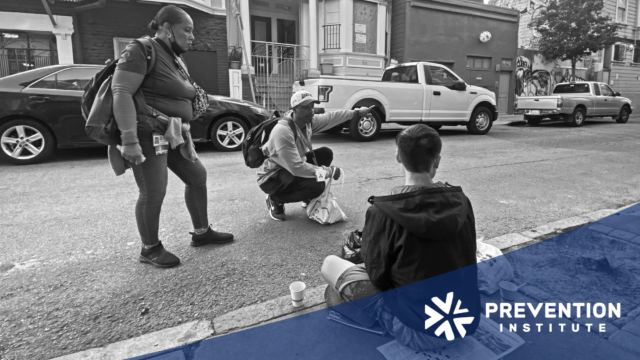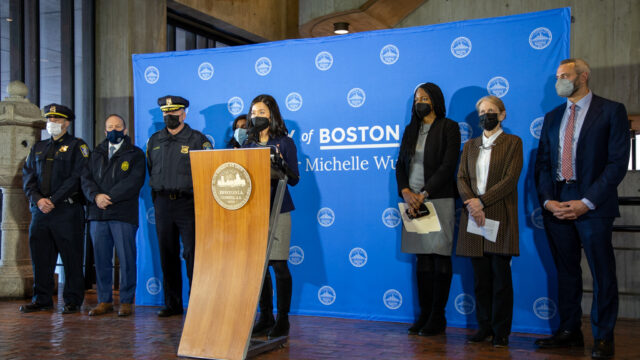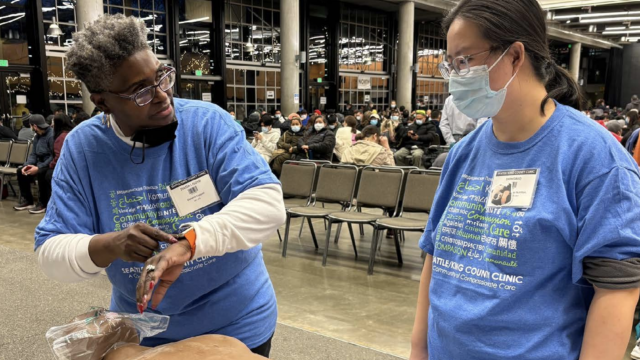Frontline Blog
Boston public health/local business partnership links unhoused residents to jobs and health services
May 2025
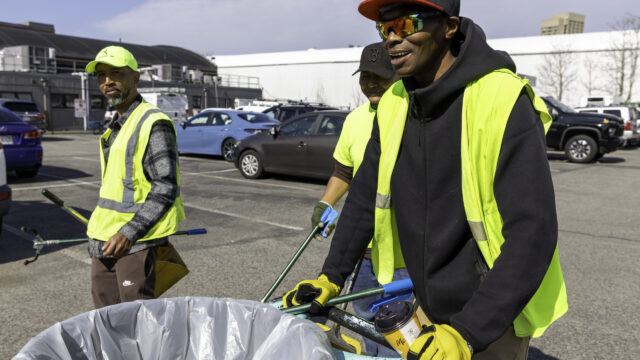
Through Boston’s Homeless Back2Work Program, business and public health are working together to address some of the city’s biggest challenges.
In the city of Boston, the neighborhood surrounding Massachusetts Avenue and Melnea Cass Boulevard (commonly referred to as “Mass and Cass”) has been hit particularly hard by both the opioid epidemic and unsheltered homelessness. As city leaders and the Boston Public Health Commission responded to the increasing number of people experiencing substance use disorder and homelessness, businesses in the area wanted to help.
The Newmarket Business Improvement District (BID) is comprised of 250 property owners and 500 businesses around Mass and Cass. With an extensive background in the business sector, Sue Sullivan, the executive director and president of Newmarket BID, used her experience to test an idea. Carrying trash bags and gloves, she approached a group of unhoused men on Mass and Cass with a proposal: she would offer them money in exchange for helping to clean up the street. Fifteen trash bags later, Sullivan realized that this approach had promise.
In 2021, this approach officially became the Homeless Back2Work Program, and it is now a key initiative of the Newmarket BID. People experiencing homelessness and substance use disorder are hired to provide street beautification services throughout the neighborhood seven days a week. In addition to receiving a steady source of income, participants also have access to a wide range of services meant to support the “whole self.”
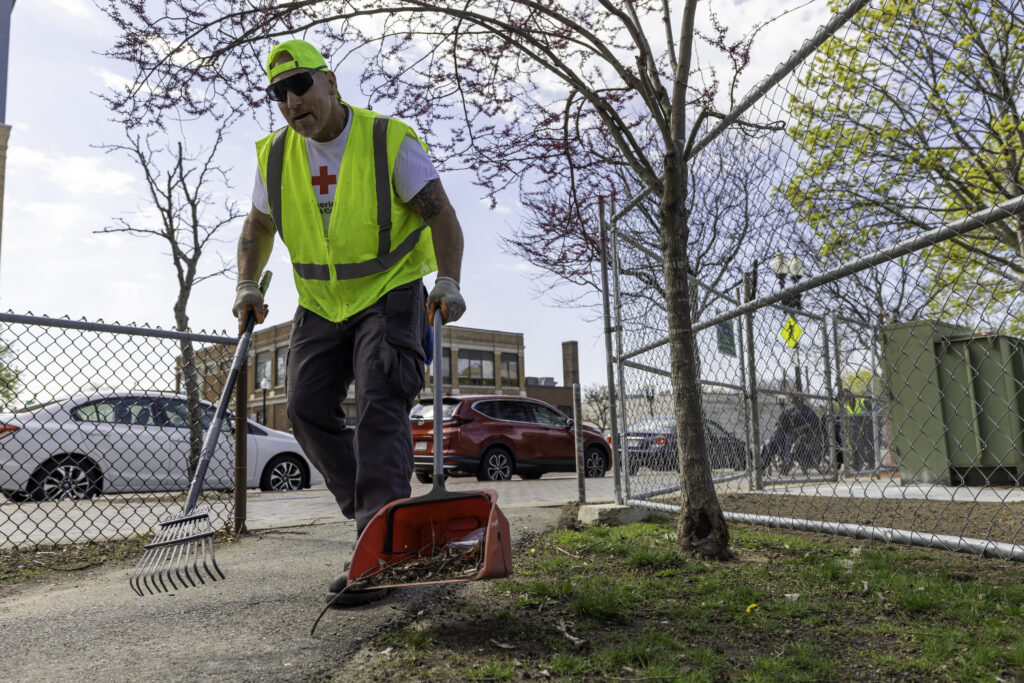
Taking a public health approach to support
Through several partnerships, Sullivan and her team have scaled this program over the years to be what it is today. One of the key funding and program partners is the Boston Public Health Commission. The city and health commission are taking a multilayered approach to keep needles off the streets, scale up harm reduction, deploy street outreach teams, develop low-threshold shelter space, and invest in workforce development models with a proven record of success – models such as the Back2Work Program.
The Boston Public Health Commission used opioid settlement funds to expand the capacity of the program, and Newmarket BID also partnered with several other programs to provide a holistic approach to support. In addition to employment as an important factor for stability and quality of life, the program is structured to help address several co-existing challenges, including connecting people to substance use treatment and housing.
This program has given me a semblance of structure and a feeling of having a community. Then there is also a feeling that I have people that genuinely care about me, and it makes me want to be a better person.
Donnie, Back2Work participant
So far, more than 150 individuals have successfully completed the program, with many going on to find stable housing, enter recovery, and secure full- or part-time work. The program has connected about 125 participants to substance use treatment; 75% have achieved recovery and the others are well on their way. At least 75 people have been assisted with permanent housing.
Other holistic supports include coordinating with the City Homeless Storage Program to safely store people’s belongings while they find permanent housing. Others receive assistance with documentation-related needs, such as obtaining IDs and addressing legal cases. The Newmarket BID team and their partners also provide financial literacy workshops, spirituality workshops, and social outings.
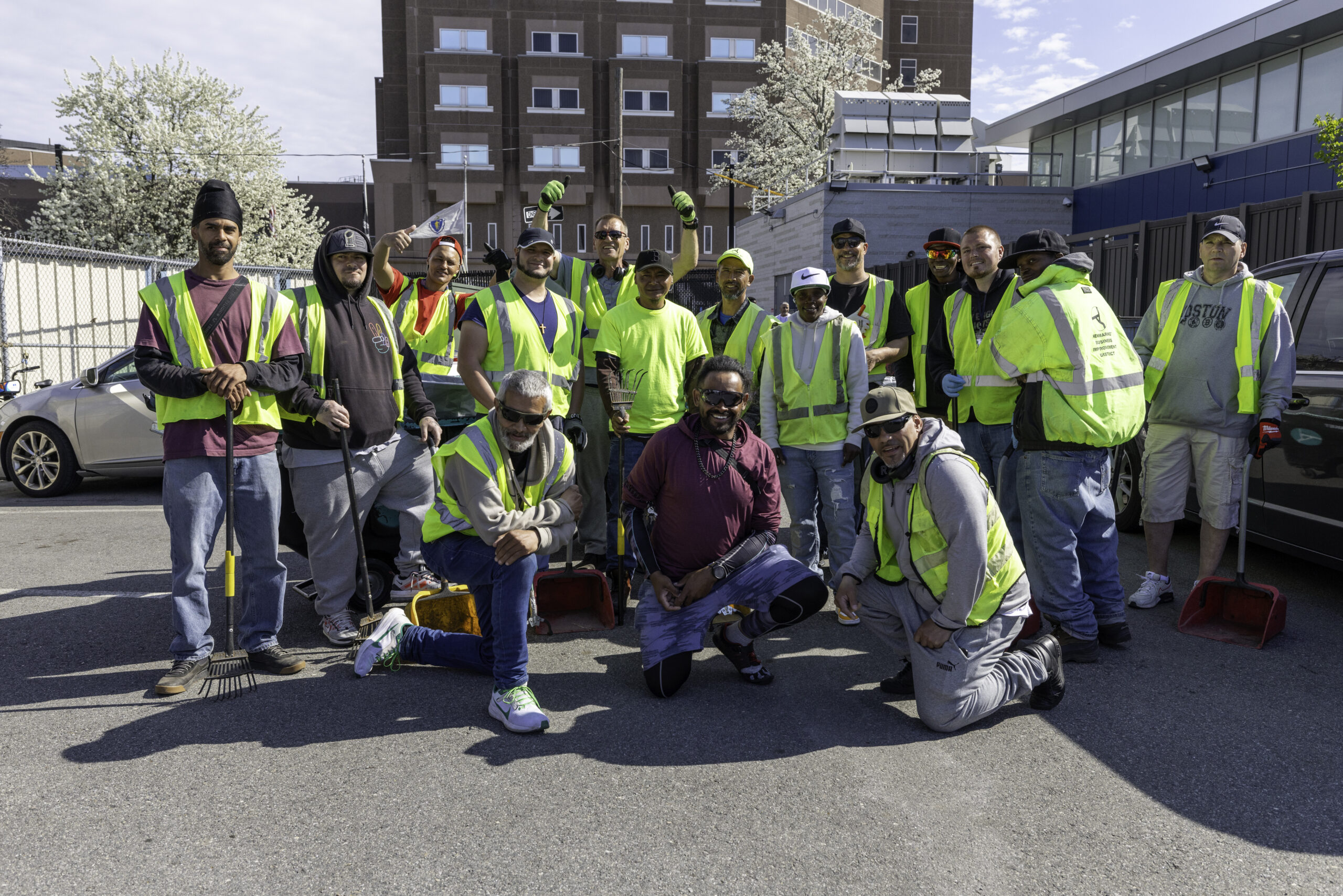
Building bridges between business and public health sectors
The Back2Work Program has near unilateral support from the property and business owners that make up Newmarket BID. Part of this success can be credited to the stigma reduction efforts among the Back2Work staff and partnering organizations.
Far too often, people dealing with homelessness and substance use are blamed for their circumstances, without consideration for the barriers that may prevent them from getting help. However, as perspectives have begun to shift, more residents now believe in the ability for people to change. Wearing their bright yellow vests with pride, program participants are welcomed within the community and often thanked for their work. Today, more than 50 program graduates are employed by local businesses in the area.
The program has also opened the door for the business sector to welcome deeper relationships with the Boston Public Health Commission. An increasing number have welcomed the health commission to provide their employees with overdose prevention training, such as safe bathroom policies and how to use naloxone (the opioid overdose reversal medication). The increased engagement with governmental public health services, the health commission’s Street Outreach Team, and visibility of the Back2Work Program has led more businesses to see themselves in overdose prevention efforts and become advocates for stigma reduction.
An eye toward the future
Part of the Back2Work Program’s success can be attributed to the team’s willingness to be flexible. By creating a culture where new ideas are welcomed by participants, staff, and partners, the program has been able to evolve. Newer additions to the program structure, like hiring peer support specialists and rotating leadership opportunities for participants, are examples of how the program stays responsive to community and participant needs.
